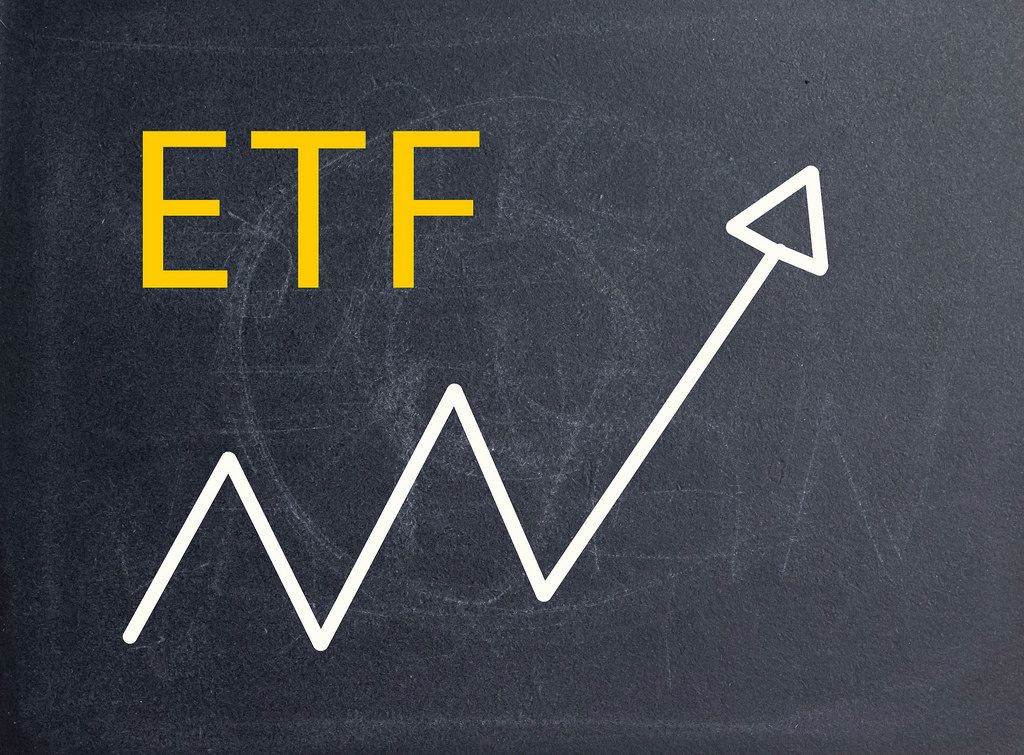Investors are always on the lookout for new opportunities to diversify their portfolios and maximize their returns. One investment avenue that has gained significant popularity in recent years is the Aluminum Stocks ETFs.
These exchange-traded funds offer investors exposure to the aluminum industry, allowing them to capitalize on its growth potential. In this article, we will delve into the world of aluminum stocks ETFs and explore why they have become so sought after by investors.
Explaining the concept of ETFs
Exchange-Traded Funds (ETFs) are investment funds that trade on stock exchanges, similar to individual stocks. Unlike traditional mutual funds, ETFs can be bought and sold throughout the trading day at market prices, offering investors greater flexibility and liquidity.
ETFs track specific indices, allowing investors to gain exposure to a diversified portfolio without buying each security separately. With lower expense ratios compared to actively managed funds, ETFs provide cost-effective access to broad market exposure.
Additionally, their trading characteristics enable various strategies such as limit orders or stop-loss orders for better risk management. Overall, ETFs have revolutionized investing by providing a convenient and accessible way to build well-diversified portfolios.
Introduction to Aluminum Stocks ETFs
Aluminum stocks ETFs track the performance of companies in the aluminum industry, offering investors a diversified portfolio without the need for individual stock selection. These funds are ideal for those who want exposure to the sector but lack the time or expertise for research and analysis.
With one investment, investors gain access to a range of aluminum-related stocks, spreading risk and reducing reliance on any single company. By investing in aluminum stocks ETFs, individuals can benefit from professional management, real-time trading, and flexibility in buying and selling shares.
It’s important to consider market risks and align investment objectives before allocating funds to these specialized funds.
Overall, aluminum stocks ETFs provide a convenient way to invest in the aluminum industry while minimizing individual stock management.
Growing Popularity and Demand for Aluminum Stocks ETFs
Investor interest in commodity-based sectors like aluminum has been steadily increasing as global economies expand and industrialization advances. The demand for materials such as aluminum has surged, prompting investors to seek ways to capitalize on this trend.
Aluminum stocks ETFs have emerged as a convenient investment option, allowing individuals to invest in multiple companies within the industry. These funds offer diversification and potential upside while reducing risk.
With their accessibility and potential for long-term benefits, the growing popularity of aluminum stocks ETFs reflects investor recognition of the opportunities presented by investing in commodities like aluminum.
Overview of the Aluminum Industry
The aluminum industry is crucial for construction, transportation, and packaging. This versatile metal is lightweight, corrosion-resistant, and conductive. Companies mine bauxite, refine it into alumina, and smelt alumina to obtain pure aluminum. They also engage in downstream activities like rolling and fabrication.
Aluminum’s applications are diverse. It’s used in doors, windows, automotive parts, aircraft structures, and electrical transmission lines. The industry focuses on sustainability through high recycling rates. Market growth is driven by emerging economies and technological advancements.
Factors Influencing Aluminum Prices and Demand
The price and demand for aluminum are influenced by several key factors. Economic growth and industrial activity drive up the demand for this versatile metal, particularly in the construction industry. On the supply side, production capacity, energy costs, geopolitical tensions, and environmental regulations can affect its availability.
Disruptions or imbalances in supply-demand dynamics can lead to price fluctuations. Monitoring these factors is essential for investors considering aluminum stocks.
Potential for Growth in the Aluminum Market
The aluminum market is set to experience significant growth in the coming years. Developing countries’ urbanization and infrastructure investments will drive sustained demand for aluminum. Advancements in technology, like electric vehicles, renewable energy systems, and lightweight aircraft, will further boost aluminum usage.
Additionally, industries seeking eco-friendly alternatives to steel or plastic are turning to aluminum due to its recyclability and low carbon footprint. Overall, these factors indicate a promising future for the aluminum market.
Diversification and Reduced Risk
Investing in aluminum stocks ETFs provides diversification and reduces risk. These funds offer exposure to a diversified portfolio of companies operating in the aluminum industry, minimizing the impact of any one company’s poor performance on overall investment.
Additionally, aluminum stocks ETFs include companies from various sectors within the industry, enhancing diversification and reducing sector-related risks. This broad inclusion of holdings ensures investors are not overly reliant on the success or failure of a single company or sector.
By spreading investments across multiple holdings, investors can mitigate risk and take advantage of broader market trends impacting the entire industry.
Lower Costs Compared to Individual Stock Investments
Investing in individual stocks requires extensive research and analysis, which can be time-consuming and costly. On the other hand, aluminum stocks ETFs offer a cost-effective way to gain exposure to the sector without incurring high transaction fees or management costs associated with buying multiple individual stocks.
Additionally, by investing in an ETF, investors can avoid brokerage fees that would otherwise be incurred when buying and selling individual stocks. This makes aluminum stocks ETFs a more affordable option for those looking to invest in the aluminum industry while minimizing expenses.
In summary, choosing aluminum stocks ETFs over individual stock investments provides a cost-effective solution. It reduces the need for extensive research, lowers transaction fees, and avoids brokerage charges.
For investors interested in gaining exposure to the aluminum sector without breaking the bank, aluminum stocks ETFs are a compelling choice.
[lyte id=’-XKq59_dcoA’]







